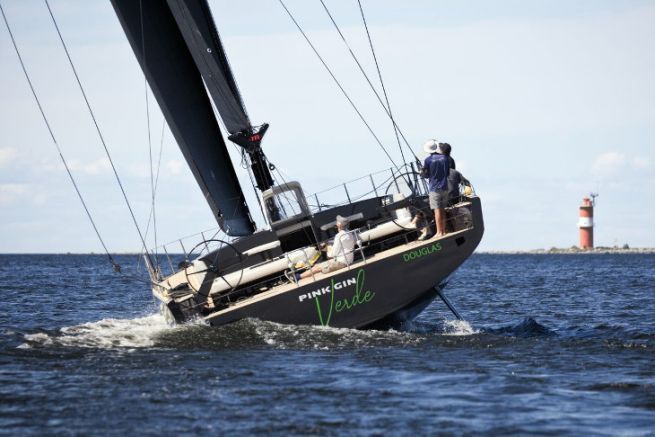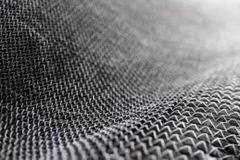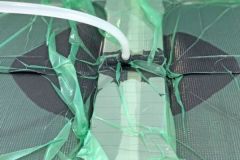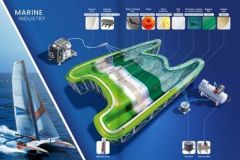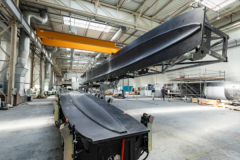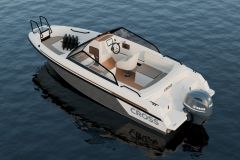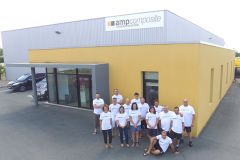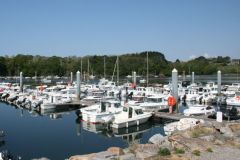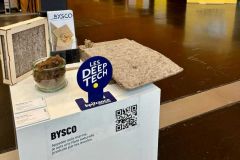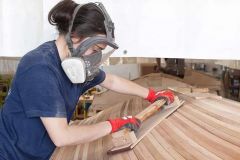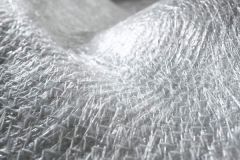Proven know-how in sustainable composites
The Swiss cleantech company Bcomp™ has been working for several years to develop and commercialise natural fibre-based reinforcement technologies to reduce environmental impact. The ampliTex™ and powerRibs™ solutions are successfully used in a wide range of high-performance applications including the marine sector. These specific sustainable materials have been implemented by leaders and early adopters in the marine industry, such as the specialists in luxury boating Baltic Yachts, together with Greenboats and Northern Light Composites.
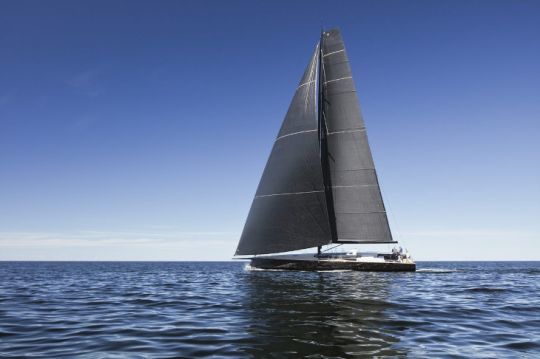
"Ten years ago natural fibres were still a novelty in the marine industry as well as in other composite sectors, with a series of unknowns which de facto limited their use. Today, this is no longer the case with Bcomp solutions adopted across industries for the past 10 years in very demanding applications", summarises Paolo Dassi, Marine and Industry Manager at Bcomp. "Knowledge sharing, cross-fertilization of concepts and know-how and close collaboration with some of the most innovative players in the market are also major components of the adoption of these flax materials."
Excellent mechanical properties with vibration damping
One of the advantages of Bcomp's solutions is that they are versatile, and they can be used in structural components (hull, stringers, bulkheads) as well as semi-and non structural components (floorboards, cable trays and furniture). The ampliTexTM fabric range is used in combination with powerRibs reinforcement for thin monolithic panels (used in the marine industry for carters, covers, ducts and semi structural parts). More structural items like hulls, decks and bulkheads are instead built as sandwich laminates, combining ampliTex™ fabrics with a core (foam, honeycomb or balsa). "Not only small boats benefit, the material was also successfully used in structural applications for boats up to 18 metres" says Paolo Dassi. "For example, the Baltic 68 Café Racer launched in 2021 is a good example with ampliTex TM that is in this case is used as a SPRINT prepreg lamination developed by Gurit."
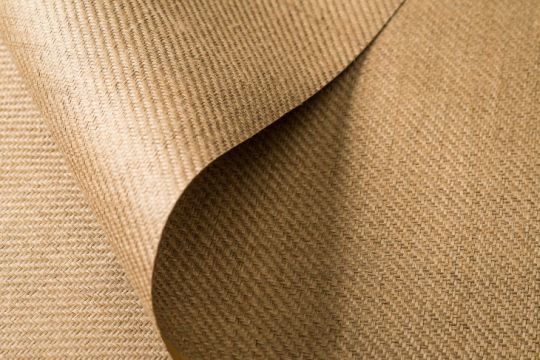
Moreover, the soundproofing and vibration-absorbing properties of flax make it an interesting material for floorboards and engine room panels. It improves comfort and reduces noise, thereby reducing the need of insulation.
Ecological and safety benefits
Flax is not lacking in arguments. Flax is a CO 2 neutral fibre that enables highly efficient thermal energy recovery at the end of a part life within municipal waste to energy management systems. Moreover, when a recyclable resin system is used the boat can be completely recyclable and both the material and the resin can be reused for the construction of non-structural parts. This is the case with the high-performance ecoOptimist dinghy developed and designed by the Italian manufacturer Northern Light Composites. It is 100% built with natural fibre composites and uses a thermoplastic resin. Another example is the IMOCA yacht of the 11th Hour Racing Team. Following the new rules by IMOCA Class for the use of alternatives materials up to 100kg and to raise awareness about ocean health, the 11th Hour Racing Team used Bcomp's solutions for their new generation yacht.
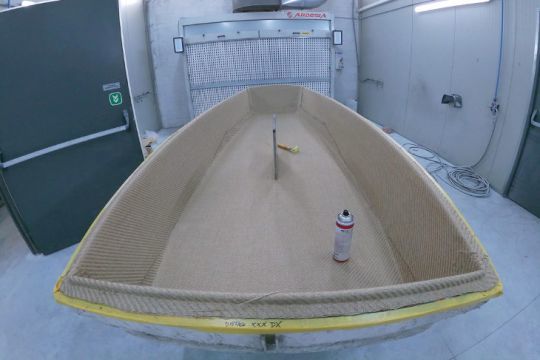
From a health and safety perspective, the materials do not, as opposed to carbon fibres, cause irritating dust and sharp splinters in production. Furthermore, these natural materials have a ductile fracture behaviour without sharp edges if a part breaks, improving safety both in production and operation.
A promising future for boatbuilding
Thanks to a thermal behaviour comparable to that of carbon, flax is also suitable for the manufacturing of moulds for carbon parts. Conclusive tests have been carried out in other fields such as motorsports, and this makes it possible to reduce the carbon impact of moulds production that are sometimes used only once, as the ampliTex™ moulds can be incinerated for efficient energy recovery.
The characteristics of flax have everything to please the nautical industry. Their use at a larger scale is going to push the marine industry towards a more sustainable future.

